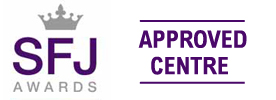State the Interim Objectives
State the Interim Objectives
If the size and scope of the investigation allows for the creation of interim objectives, it is worth considering and creating them at the outset.
This allows for:
- prioritisation of certain elements of the investigation, while ensuring that others are not forgotten;
- decisions to be made regarding availability or obtaining of resources;
- proper allocation of those resources, particularly specialists;
- those involved in the investigation to plan their time and tasks accordingly;
- budgeting to be considered, i.e. allocation of funds;
- identification of legal and other restraints on the conduct of the investigation;
- an estimate as to the time the enquiry will take, and the timings of each individual element.
Looking into this even further, the reason that these activities should be considered at this stage is so that each can be given due thought to each individual aspect while still being in a position to take a holistic approach. Leaving the consideration of these steps until later in the enquiry will result in ad hoc planning efforts, which in turn results in a disorganised enquiry, chaos management, and poor results. Identifying them will result in smoother progress further along the investigation.
Consider the budget
If budgeting is a consideration, knowing the potential costs and benefits of the enquiry will allow for some enquiries to be disregarded out of preference for enquiries that are anticipated to be more fruitful.
Breakdown and definition of the tasks
Having established the project objective and the interim objectives, the tasks that have to be carried out in respect of the interim objectives can now be stated.
In a major investigation, the planning done at this stage can save so much time and effort, and can ease the progress of the enquiry to the convenience of the investigation and its objective.
A simple illustration; one task may be to obtain a production order from a High Court judge in respect of access to a bank account. Knowing in advance that this has to be done means that the preparation for the application can be done after an appointment is made with the judge, rather than preparing the application and then making the appointment, which may take longer and possibly result in a delay to the investigation. Added to the possibility that the investigation team may need to seek advice on the content of the application, the decision could be made to make the appointment for a date later than would have been the case had the team been familiar with the process.
Incidentally, setting deadlines is a very effective way of ensuring that work is done in plenty of time. In this example, knowing that the application is due for a set date will mean that the work will be done by that date. Deciding, instead, to prepare the application and then make the appointment means that the preparation will take 'as long as it does'.
Outline the organisation
Not hitherto addressed, and something which is easier in a hierarchical organisation than in a partnership organisation, is the need to ensure that the personnel involved in the project have a full understanding of the 'chain of command'. This is necessary because decisions have to be made at the correct level, or by the properly authorised or competent persons.
The senior investigator, being the absolute authority, should select and have absolute faith in the deputy senior investigator. They, in turn, should be happy that the person responsible for day to day running of the investigation (if not them) is competent and trustworthy, and not someone who tends to carry on without consultation, while simultaneously not being someone who consults the seniors over everything.
The investigators and administrators carrying out the actual tasks will then know to whom certain things must be reported, who can be bypassed and who must be approached for decisions, and so on. For their part, the structure will mean that the managers know what to expect of the investigators under their direction. Remember that the creation of a structure is creation of responsibility and accountability in two directions, up and down.
Page: 3
Module: 13




